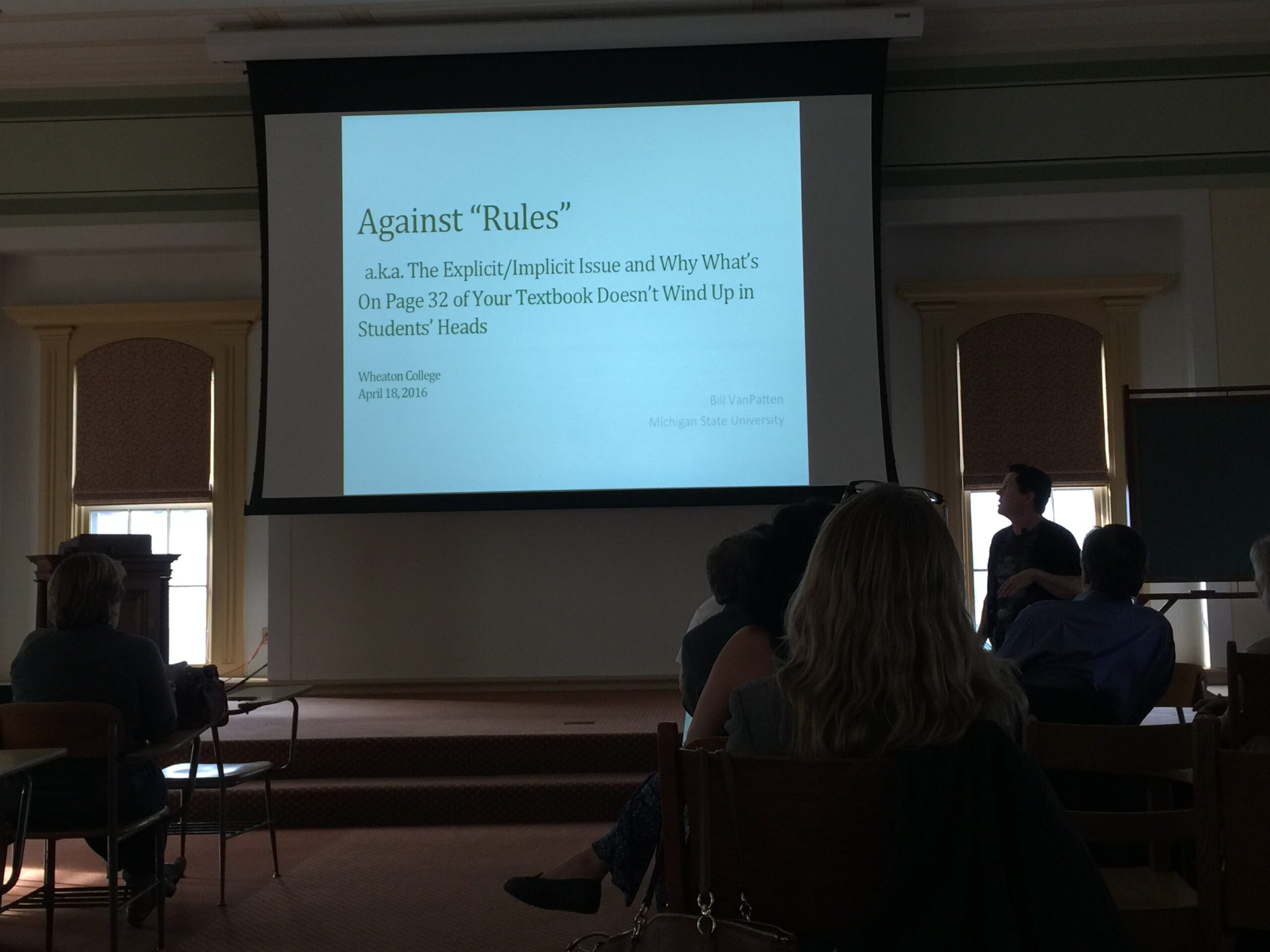Have you ever struggled with learning a second language from a textbook? Bill VanPatten, director of language instruction in the Department of Romance and Classical Studies at Michigan State University, discussed these issues during a talk titled ‘Against Rules: Second Language Acquisition’ in Holley Room, Mary Lyon.
The lecture on April 18 discussed problems with material in textbooks for students learning a second language. VanPatten,internationally known for his work in second language acquisition and instruction placed emphasis on input process, processing and acquisition, morpho-syntactic relationships, and teaching instructions.
He began by asking why second language learners fail to acquire what is taught to them. He explained that it was because something in our head is different from what’s on the pages of a textbook. He introduced the idea of linguistic system, which was an abstract and complex mental representation of language.
There are explicit (with awareness) and implicit (without awareness) differences in learning the new language. In addition, VanPatten explained that second language acquisition involved input (meaning bearing language), internal architecture (universal grammar) and processor (the mechanism that mediates between input and internal architecture). Thus, he concluded that classical grammar rules do not always translate into what is in our mind.
In addition, VanPatten added that language consists of two types of phrases: lexical phrases and functional phrases. These phrases exist not in a linear order but in a “stacked” hierarchical order. Explicit rules and the implicit mental representation are qualitatively different things. Therefore, explicit information like grammar rules cannot take the place of input, processing mechanisms, and the internal architectures.
Later on, VanPatten compared the implicit mental representation of language and the explicit rules on the textbooks with water and oil. He stated that what learners get in their heads is an implicit mental representation of language like oil, but what is on the textbooks are explicit rules like water. Classical rules cannot become the implicit system because there is no way to transform water into oil.

